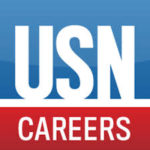 How to explain some of the more complex work histories.
How to explain some of the more complex work histories.
 As seen in U.S. News | February 27, 2017
As seen in U.S. News | February 27, 2017
If you have been in the workforce for a decade or more, it is highly probable you have some complex employment scenarios that may require more finesse when describing your background to a prospective employer. Things like layoffs, mergers, acquisitions, department relocation and time off to care for your family add a layer of complexity when writing a resume. Here are ways to effectively address some of the most common challenges faced by professionals with more complicated work histories.
Transition to a different industry: By choice or necessity, it is still tough to show how experience in one industry is relevant to another industry. Hiring is about minimizing risk, which means hiring managers often rely on a track record of success in a similar role to give a high degree of assurance that you will be happy and successful in their role. In other words, “If you were happy and talented at doing this before, you are likely to be happy and talented at doing this again.” Whether you agree with that statement or not, it is the prevailing way companies hire.
Candidates from one industry looking to move to another have the burden of proof – they must show in their resume how their background transfers to the new role as convincingly as someone already in that field. Again, this may not be fair, but it is reality. Start the process by uncovering what the key business problems are that you will solve in the new role. With that knowledge, you can rework your employment descriptions to display how you had successfully addressed similar issues. A well-written summary at the top of your resume also gives you the chance to bridge your past and their future. Try to include key words and expressions the targeted company or industry uses in their website and job descriptions, assuming they accurately describe you. In short, do your best to mirror what the new role requires in your resume. It is critical to be truthful and not exaggerate transferable skills, but write in the language of your target audience, not in what is easiest for you.
You can help to mitigate some of this perceived risk a couple of ways in your resume. Start by displaying relevancy or transferability of your skills, especially digital ones. Technology moves at light speed, so productivity is tied to your command of digital tools required for your desired profession. Take a class or online tutorial, watch Ted talks, download free trials of software, master online calendaring, learn how to set up webinars, seek out volunteer projects, etc. You should also join industry associations, attend conferences, follow (or write) industry-centric blogs or tweets and pay attention to industry thought leaders.
The return on your initiative is high – you can include many of these activities and skills on your resume. Additionally, you will have a better sense of the terms and critical issues in your chosen industry and you can address them more effectively in your summary and past position descriptions. Finally, as you meet people in your industry, you are more likely to tap into the hidden employment network where you are considered for a role because you were referred by a trusted resource.
A well-crafted resume is a powerful career development tool. Employers expect you to understand what they need and build a written case to show your skills and experience make you the best person to spend their salary dollars on. Not everyone is (OK, probably most people aren’t) skilled at customized branding and writing, which is why many people engage a professional resume writer or a career coach to assist them. When expertly handled, the potential negative impact of life’s complexities can be minimal to null. Your efforts can make a huge difference in your employment prospects.
